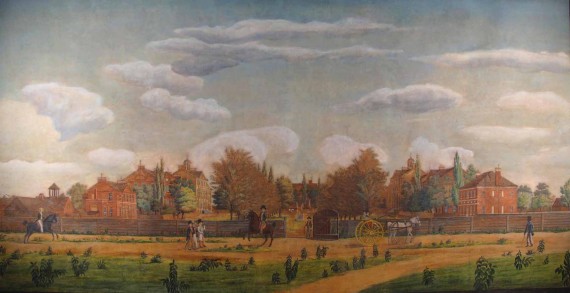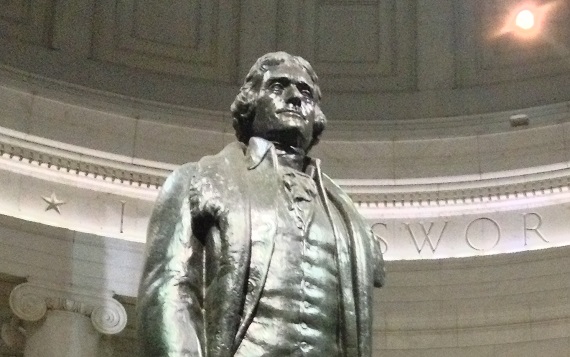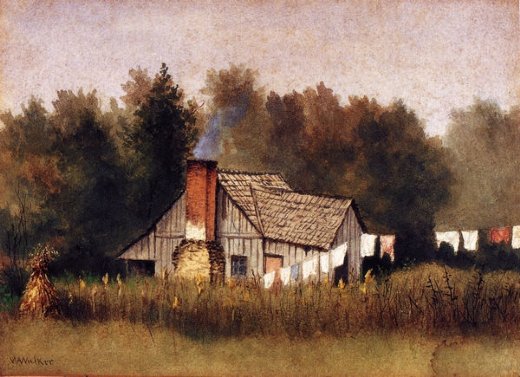
In 1715, Colonial Governor Charles Craven remarked that his front line troops in the fight against a hostile American Indian tribe comprised “two hundred stout negro men.”
Just five years prior, Indian agent Thomas Nairne wrote that the colonial militia in this same colony possessed “a considerable Number of active, able, Negro Slaves; and the Law gives everyone of those his Freedom, who in the Time of an Invasion kills an Enemy.”
In 1708, when threatened by a potential invasion, newspaper reports from the colony had nearly “1000 good Negroes that [know] the Swamps and Woods, most of them Cattle-hunters….”
When the “two hundred stout negro men” were not enough to defend from Indian raids, Craven asked a neighboring colony to send extra “stout negro” slave manpower. The colony responded by asking for one female slave for every male slave it supplied for the fight. Craven and other leaders refused, for they found it “impracticable to Send Negro Women in their Roomes by reason of the Discontent such Usage would have given their husbands to have their wives taken from them which might have occasioned a Revolt.”
It seems that no one in this colony viewed African slaves as inferior or dangerous. They were well armed and were an integral part of colonial defenses. They even refused to break up families, fearing that such a move was might not only lead to a “Revolt” but that it was inhumane to do so. These men were not considered “chattel,” and by serving in the militia they were guaranteed their freedom.
The same racial attitudes were not held by those in another British North American colony.
In 1701, John Saffin, a man who made considerable wealth in the lumber, tobacco, fish, and fur trade, penned the first known defense of slavery in North America, one that would outline the “positive good” defense later used in the nineteenth century.
Saffin dabbled in the slave trade and owned several indentured servants. When the term of one his African servants named Adam ended in 1701, Saffin refused to give him his freedom.
A local clergymen penned a pamphlet both condemning Saffin and slavery, to which Saffin replied with a piece entitled A Brief and Candid Answer.
Saffin argued that God intentionally “set different Orders and Degrees of Men in the World…” while equality would “invert the Order that God had set.” Saffin considered slavery to be a Biblically ordained institution, for nature proved that some men were to be “High and Honourable, some to be Low and Despicable; some to be Monarchs, Kings, Princes and Governors, Masters and Commanders, others to be Subjects, to be Commanded; Servants of sundry sorts and degrees, bound to obey; yea, some to be born Slaves, and so to remain during their lives.” This was God’s law.
Saffin believed that the colony would be better off without African slaves, but if they could not be “all sent out of the Country…the remedy would be worse than the disease.” Saffin thought that free Africans would be a “plague to this Country” and thought the African was better off as an American slave. “It is no Evil thing,” he wrote, “to bring them out of their own Heathenish Country, [to] where they may have the knowledge of the One True God, be Converted and Eternally Saved.”
Later, Saffin scribbled a bit of poetry about “the Negroes Character,” where he labeled them “Cowardly and Cruel,” and “Prone to Revenge, Imp of inveterate hate.” They had “Mischief and Murder in their very eyes,” and were “Libidinous, Deceitful, False, and Rude/The Spume Issue of Ingratitude.”
He thus considered slavery to be a benefit to both races, for whites could use their slaves as needed and Africans would be lifted up from barbarism.
Quiz time:
What colony called Charles Craven governor?
What colony did John Saffin call home?
If you answered South Carolina for Craven and Massachusetts for Saffin, you would be correct.
The Massachusetts courts eventually forced Saffin to free Adam, and following the Stono Rebellion of 1739, racial attitudes stiffened in South Carolina, but in the early eighteenth century, African slaves in South Carolina possessed at least a modicum of liberty and were free from the racial stereotypes that Saffin noted in his A Brief and Candid Answer.
In fact, the Carolina Charter required every man–including slaves–to be able to defend the colony from foreign invasion. This was not the case in Massachusetts.
History, and the history of American race and slavery in particular, is a complex mosaic. Southerners did not invent proslavery ideology. Much of it came from Northern theological instruction. Saffin was tutored by Puritan minister Charles Chauncy, the future President of Harvard. Such history does not neatly fit with modern conceptions of social justice and Northern self-righteousness, but when many Americans are simply taught platitudes and slogans, it is almost too much to expect anything more.






